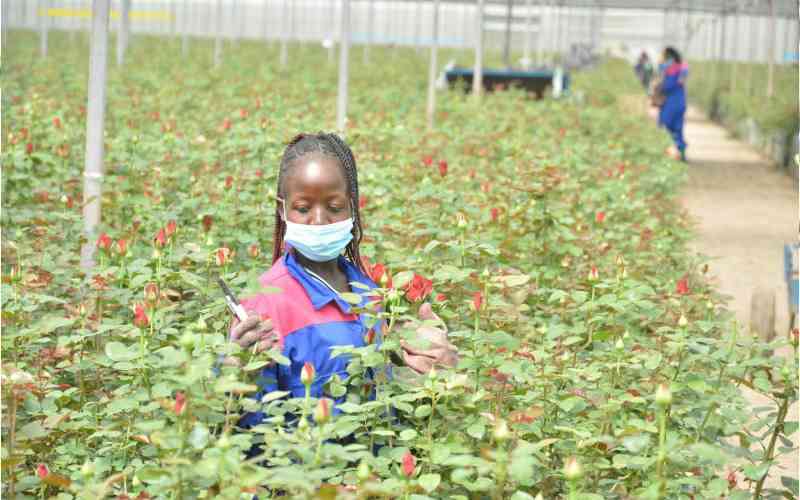Flower farmers are crying foul over the move by the European Union (EU) to increase inspection checks by 25 per cent on all cut roses entering their market.
Through the Agricultural Employers Association (AEA), they warned that the new rules could dampen the international demand for the country’s flowers leading to job losses.
Last month, the EU increased from five to 25 per cent inspection checks on roses before entering the EU market based on false codling moths.
In the last couple of months, the farmers have decried high cost of production worsened by the failure of the government to pay over Sh12 billion in VAT refunds.
According to the association’s CEO Wesley Siele, the flower sector was facing a substantial challenge due to the heightened demands by the EU.
He noted that the country was currently experiencing stiff competition from Ethiopia due to high production costs.
“The EU now requires a 25 per cent increase in inspection of cut-rose flowers from the current five percent before accessing the market,” he said.
Speaking in Naivasha, Siele called on the government to intervene by leveraging the Economic Partnership Agreement (EPA) to negotiate favourable terms.
He proposed the collective effort of combating the false codling moth at the farm level rather than imposing costly and punitive checks at the market entry.
“We encourage other bilateral talks with other markets to diversify our market base as the current demands pose a significant setback to this critical sector,” he said.
The CEO expressed fears that maize production could drop sharply this year due to the fake fertiliser scandal that rocked the country.
“There is a possibility of poor production resulting in food insecurity in the coming year and the government needs to put in place short-term measures to address this crisis,” he said.
The AEA chairman Kirimi Mpungu lamented that some sections of the Finance Bill seek to introduce new taxes that will hurt farmers.
Mpungu noted that the livestock sector has been forgotten despite the high potential to drive the economy.
The outgoing chairman Stephen Strong decried the new taxes being introduced by the government against a rise in the cost of production.
“Currently the biggest challenge facing the agricultural sector is the high cost of production and new taxes targeting small-scale farmers could kill farming,” he said.

